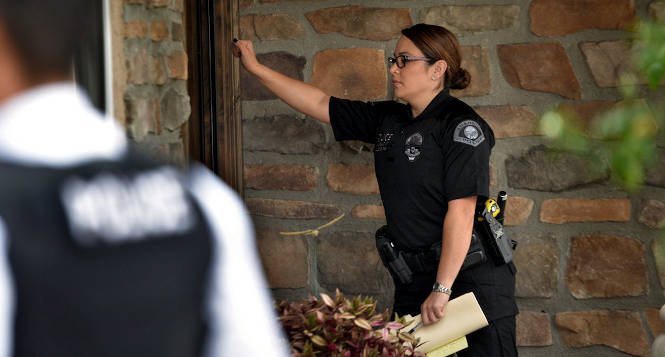Do exigent circumstances give police the right to enter a person’s home without a warrant?
The Fourth Amendment protects the right of the people to be secure in their houses against unreasonable searches and seizures. However, this right is not absolute. The United States Supreme Court recently heard arguments in Lange v. California which raises the following question: Do exigent circumstances give police the right to enter a person’s home without a warrant, normally required by the 4th Amendment if police are pursuing a person suspected of committing a misdemeanor offense?
In Lange v. California, Arthur Lange was driving home in his car while listening to loud music and honking. This caught the attention of police officer Aaron Weikert. Officer Weikert began following Mr. Lange intending to conduct a traffic stop. Officer Weikert activated his overhead lights, but Mr. Lange did not stop, drove into his garage, and began to lower the garage door behind him. Officer Weikert put his foot under Mr. Lange’s garage door to stop it from closing. Officer Wiekert then contacted Mr. Lange and indicated he smelled alcohol on Mr. Lange. It was later determined that Mr. Lange had a blood alcohol (BAC) over the legal limit.
What is considered to be an “exigent circumstance”? Exigent circumstances exist when officers confront a compelling need for official action and no time to secure a warrant. In other words, there must be a genuine emergency. Exigent circumstances do not exist when the only cost of seeking a warrant would be inconvenience or some slight delay. Officers may enter a home without a warrant only if they could reasonably conclude that seeking one would threaten a compelling law-enforcement need. The Supreme Court has in past recognized that pursuit of a suspect is one situation that may give rise to an exigency sufficient to justify a warrantless search.
Lange v. California is setting the stage to see if the Supreme Court will expand what is an exigent circumstance or if the Court will find this warrantless entry was a violation of the 4th Amendment. We will continue to follow this case and post a follow up blog when the Supreme Court issues an opinion as it an important case involving 4th Amendment rights. In the interim, David Bell is experienced in 4th Amendment issues. If you have a criminal case pending and believe your 4th Amendment rights may have been violated, please contact David Bell and his team to see if they can assist you with your case.
